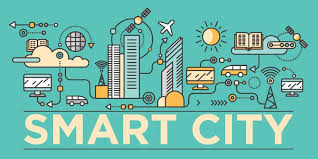The Evolution of Smart Cities in India
Overview
Smart city projects in India are redefining urban landscapes and reshaping the way cities function. With a focus on leveraging technology and innovation, these initiatives aim to create sustainable, efficient, and inclusive urban environments that enhance the quality of life for residents and promote economic growth.
Understanding the Concept of Smart Cities
Defining Smart Cities
Smart cities are characterized by the integration of digital technologies, data-driven decision-making, and citizen-centric governance to address urban challenges and improve service delivery across various sectors such as transportation, energy, healthcare, and waste management.
Key Components of Smart Cities
- Infrastructure: Development of robust digital infrastructure, including high-speed internet connectivity, smart grids, and sensor networks, to enable seamless communication and data exchange.
- Mobility: Implementation of intelligent transportation systems, including smart traffic management, public transit systems, and bike-sharing programs, to reduce congestion and improve mobility within cities.
- Sustainability: Adoption of renewable energy sources, energy-efficient buildings, and green spaces to promote environmental sustainability and mitigate the impact of urbanization on the ecosystem.
Impact of Smart City Projects in India
Improved Quality of Life
Smart city initiatives focus on enhancing livability by providing better access to essential services such as healthcare, education, and public safety, thereby improving the overall quality of life for residents.
Economic Growth and Innovation
Investments in smart infrastructure and technology-driven solutions stimulate economic growth, attract investments, and foster innovation and entrepreneurship, positioning cities as hubs of economic activity and job creation.
Sustainable Development
Smart city projects prioritize sustainability by promoting resource efficiency, reducing carbon emissions, and integrating eco-friendly practices into urban planning and development, contributing to a more sustainable future.
Challenges and Opportunities Ahead
Challenges
- Funding Constraints: Limited financial resources and funding gaps pose challenges to the implementation and scalability of smart city projects across India.
- Digital Divide: Addressing the digital divide and ensuring equitable access to technology and digital services remain significant challenges in promoting inclusive smart cities.
Opportunities
- Public-Private Partnerships: Collaboration between government agencies, private sector companies, and civil society organizations can unlock new opportunities for investment, innovation, and knowledge sharing in smart city development.
- Citizen Engagement: Empowering citizens through participatory decision-making processes, feedback mechanisms, and digital platforms fosters community engagement and ownership in shaping the future of smart cities.
Building Smart, Sustainable, and Inclusive Cities
Smart city projects hold immense potential to transform urban landscapes in India and pave the way for sustainable, inclusive, and resilient cities of the future. By embracing innovation, collaboration, and citizen-centric approaches, India can harness the power of smart technologies to address pressing urban challenges and create vibrant, livable cities that cater to the needs of all citizens.




